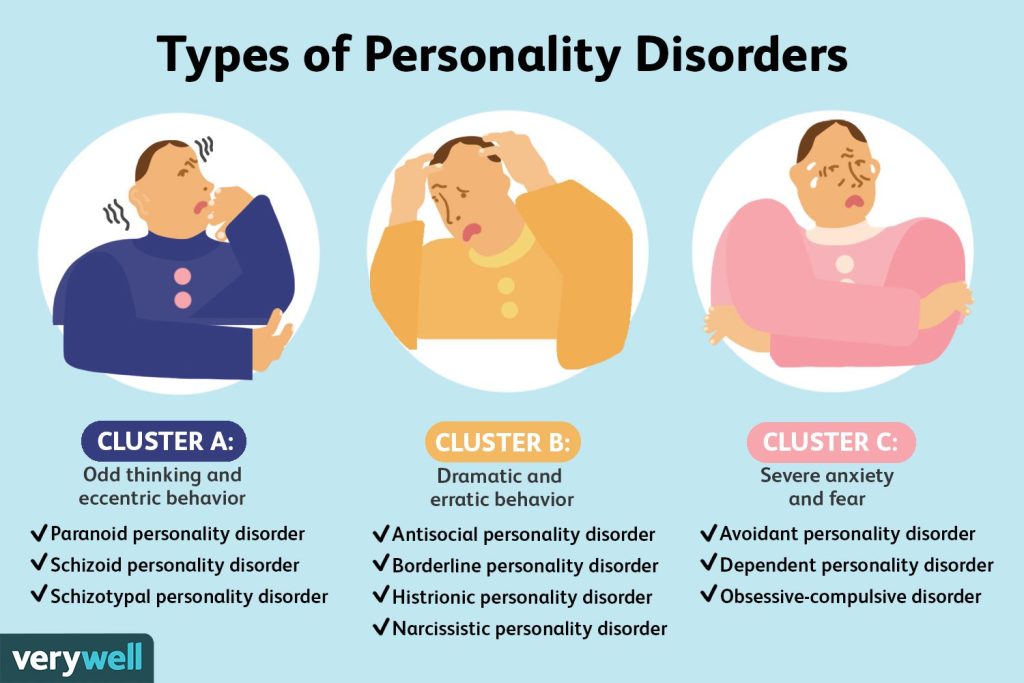Personality Disorder
Long-term pattern of thinking, behavior and emotion that causes distress and makes it difficult to function in everyday life is termed as personality disorder and people suffering from it find it hard to change their behavior or adapt to different situations. They may have trouble sustaining work or forming positive relationships with others.
People with personality disorders also have high rates of coexisting mental health conditions like depression and substance abuse and because of the nature of these disorders, it can be difficult for people to recognize they have a problem or to seek help.
People with personality disorders also have high rates of coexisting mental health conditions like depression and substance abuse and because of the nature of these disorders, it can be difficult for people to recognize they have a problem or to seek help.

Personality disorders are grouped into three main clusters:
Cluster A
Generally described as “odd or eccentric” in thoughts or behaviors:
- Paranoid Personality Disorder: People with this disorder are suspicious and mistrustful of others, interpret other people’s motives as harmful, and may be hostile or emotionally detached.
- Schizoid Personality Disorder: Causes a lack of interest in social relationships and an unemotional response to social interactions.
- Schizophrenia Personality Disorder: May cause peculiar dress, eccentric behavior, unusual or bizarre thoughts and beliefs, being uncomfortable in social settings, and trouble forming close relationships.
Cluster B
General features include unstable emotions and dramatic or impulsive behaviors:
- Antisocial Personality Disorder: May cause a disregard for the law or for the rights of others with a lack of remorse, such as lying and stealing, aggression, violence or illegal behavior.
- Histrionic Personality Disorder: Such people are highly emotional and dramatic, have an excessive need for attention and approval, and may be obsessed with their appearance.
- Borderline Personality Disorder: Is characterized by fear of abandonment, intense and unstable relationships, extreme emotional outbursts, deliberate self-harm or self-destructive behavior and a fragile sense of self or identity.
- Narcissistic Personality Disorder: A pattern of inflated self esteem, need for admiration, lack of empathy or concern for others, and fantasies of success, power or beauty.
Cluster C
General features include anxious and fearful thoughts and behavior:
- Avoidant Personality Disorder: Such people avoid social interaction and are extremely sensitive to negative judgments by others and may be timid and socially isolated with feelings of inadequacy.
- Obsessive-Compulsive Personality Disorder: People with this disorder are preoccupied by rules, orderliness and value work above other aspects of life; they are perfectionistic and have a need to be in control. Please note this is distinct from full-blown OCD (Obsessive-Compulsive Disorder), which is a form of anxiety disorder.
- Dependent Personality Disorder: This causes a fear of being alone and need to be taken care of, difficulty separating from loved ones or making independent decisions. They may be submissive and even tolerate domineering or abusive relationships.

